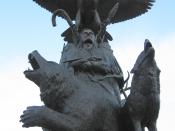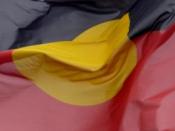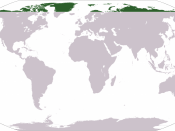There is a 'hidden science curriculum' that is widely being taught in Canadian schools today. This hidden curriculum conveys a particular Eurocentric worldview amounting to cultural assimilation and marginalization of students who possess other knowledge bases than the Western societal norm. The deculturization and devaluation has led to First Nation's students generally not embracing scientific and environmental ecological discourses resulting in the loss of valuable Aboriginal knowledge; the cornerstone of cultural identity of indigenous peoples.
In the wake of the broken links between Indigenous Knowledge and its people, Indigenous Knowledge has become more widely recognized outside the communities where traditionally the knowledge has been in use. While it is only in recent times that Western scientists have become concerned with environmental issues, being responsible and caring for the land has always been a part of Aboriginal spirituality and life.
So how can educators assist Aboriginal students to gain access to Traditional Indigenous Knowledge and ways of thinking within the present Western scientific framework? Before attempting to protect and reconnect the knowledge base of Aboriginal peoples we must first try to understand more in depth the history of Traditional Indigenous Knowledge.
Defining Traditional Indigenous Knowledge
Traditional Indigenous Knowledge has been defined as: a body of knowledge built by a group of people through generations living in close contact with nature. It includes a system of classification, a set of empirical observations about the local environment, and a system of self-management that governs its use. Other names for it include: 'local knowledge', 'folk knowledge', 'people's knowledge', 'traditional wisdom' or 'traditional science'. This knowledge is passed from generation to generation making it a cumulative and dynamic entity. Indigenous knowledge is the local knowledge that is unique to a culture, community or society and builds upon the historic experiences of a people adapting...


